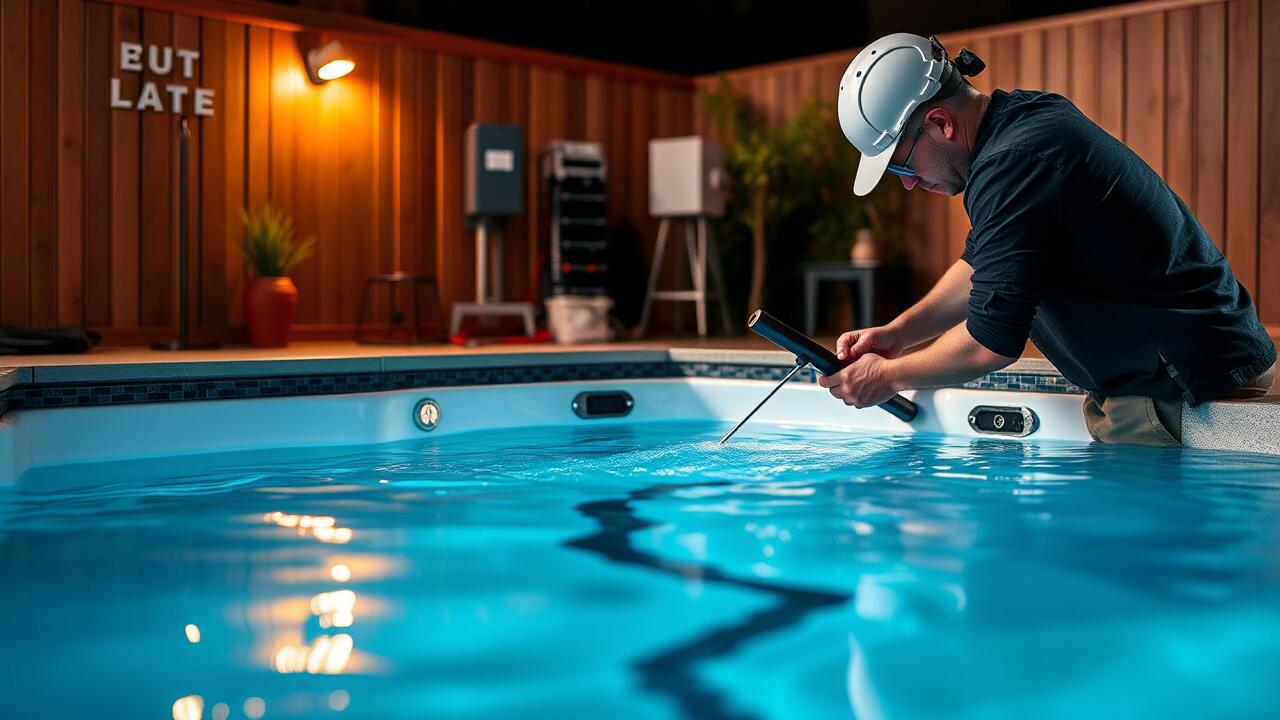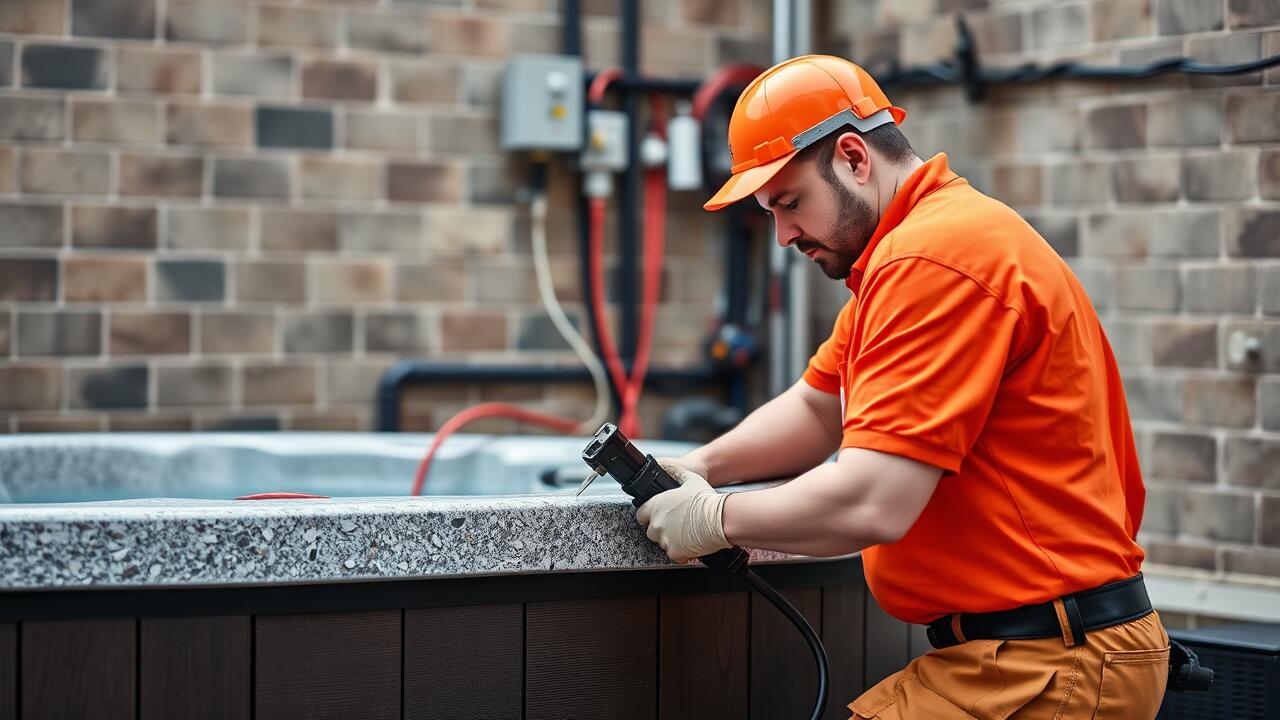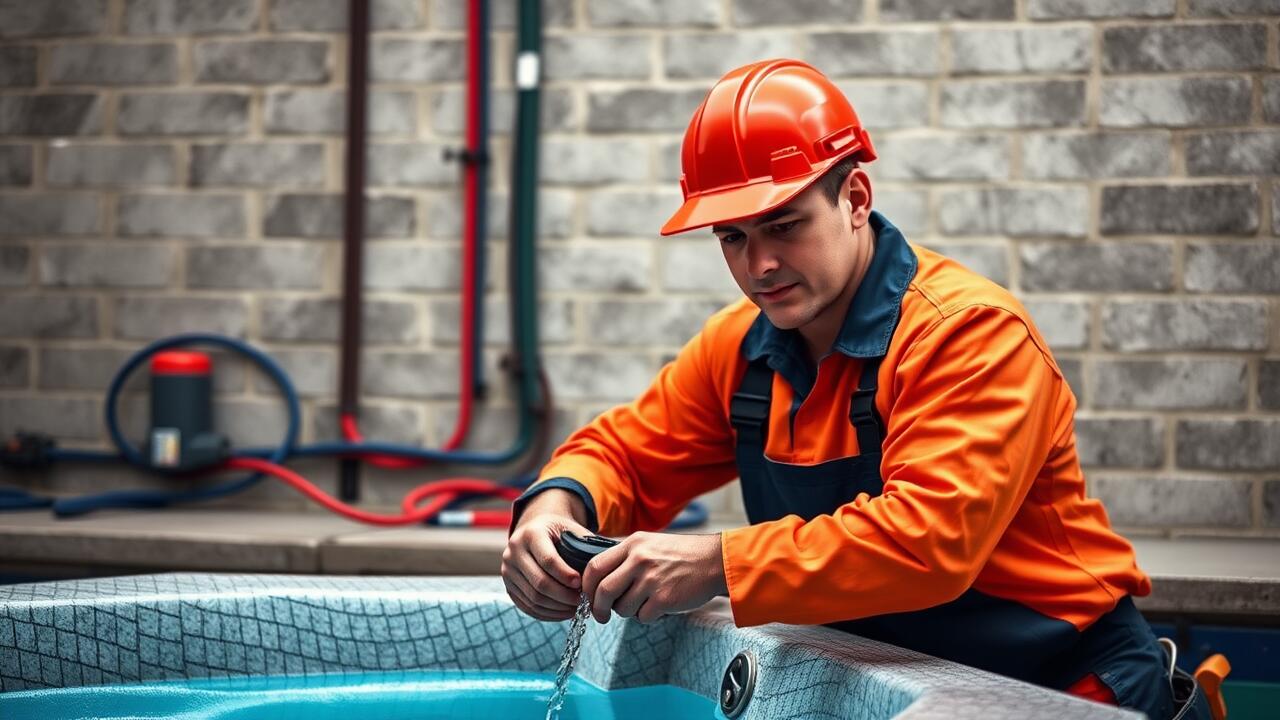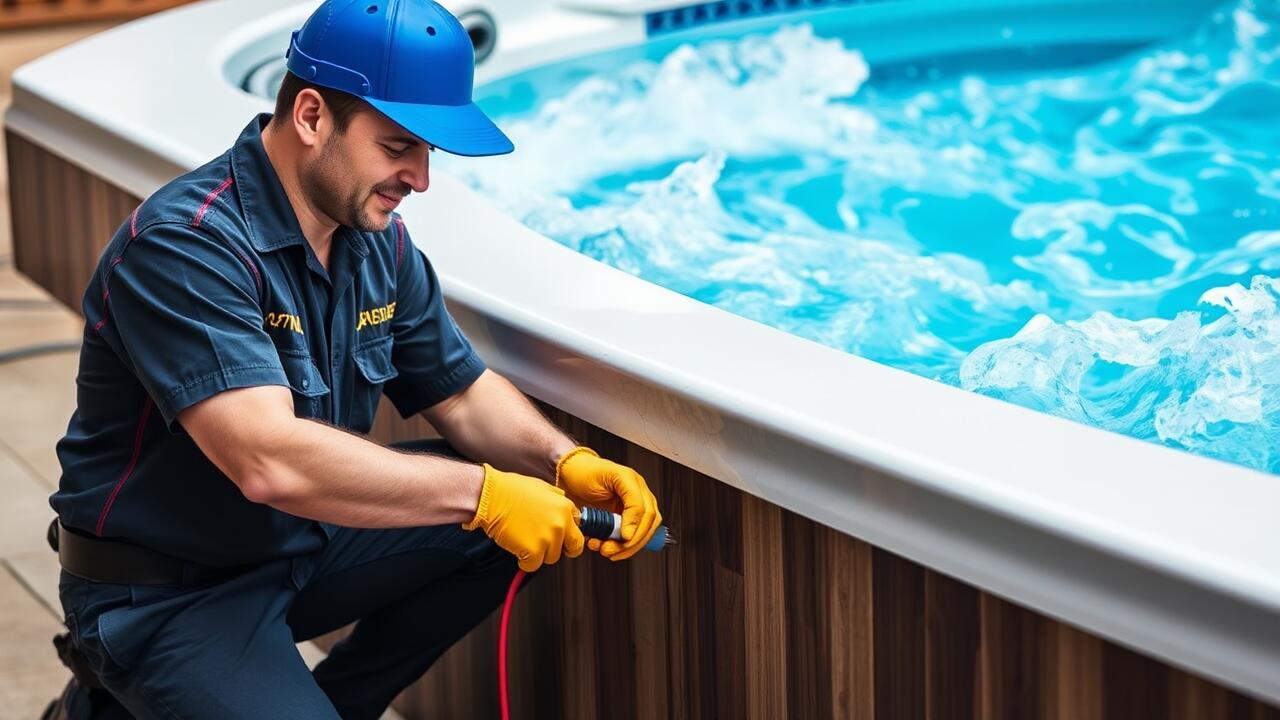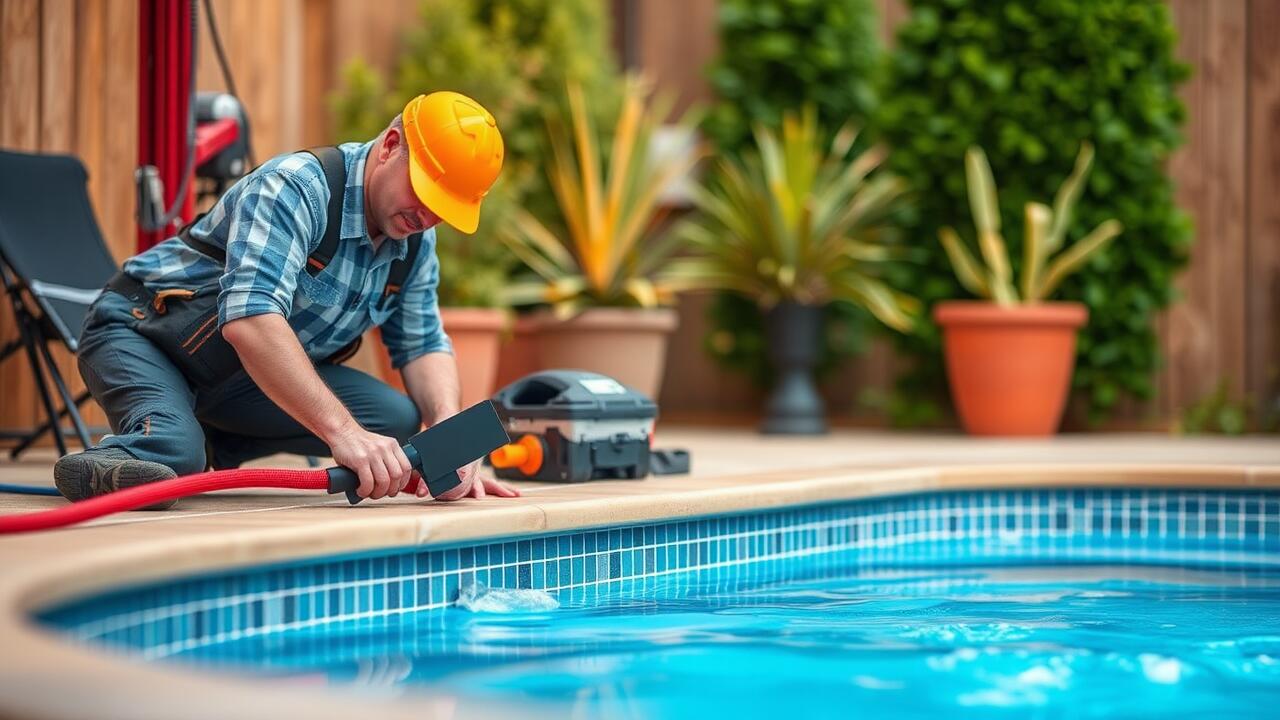
Common Misconceptions About GFCI Units
Many homeowners believe that GFCI units are only required for outdoor wiring, especially in areas like pools and hot tubs. This misconception can lead to dangerous situations, as GFCI protection is essential in any location where water and electricity may come into contact. Facilities with Pool and Hot Tub Wiring in Greater Heights, Houston, should ensure compliance with GFCI requirements to minimize the risk of electrical shock.
Another common myth is that GFCI devices are interchangeable with standard outlets. While both serve the purpose of providing power, GFCI units offer unique safety features designed to protect against ground faults. Understanding the specific function of GFCI units is crucial for anyone involved in pool and hot tub wiring in Greater Heights, Houston. Proper installation and usage of these devices contribute significantly to overall safety.
Clarifying Myths and Facts
Many people believe that GFCI units are only necessary if there is a pool on the property. This is not entirely accurate. GFCI devices are essential anywhere water is present, including outdoor areas, kitchens, and bathrooms. While pools and hot tubs are significant considerations, the presence of any electrical source near water increases the risk of electrical shock. Thus, understanding the placement of GFCI devices extends beyond just pool settings.
Another common misconception is that GFCI receptacles and circuit breakers serve the same purpose. While both protect against ground faults, there are key differences. GFCI receptacles are installed at specific outlets, while GFCI circuit breakers protect entire circuits. Homeowners often overlook this distinction when planning electrical safety for outdoor environments like Pool and Hot Tub Wiring in Montrose, Houston. Understanding these differences can lead to better safety measures and compliance with electrical codes.
Types of GFCI Devices Suitable for Pools
When it comes to ensuring safety in pool areas, selecting the right GFCI device is crucial. There are two main types of GFCI devices suitable for pools: GFCI receptacles and GFCI circuit breakers. GFCI receptacles are often installed at outlets near the pool to protect users from electrical shock. These devices monitor the current flow and can shut off power instantly when they detect an imbalance, thus ensuring safety around water.
GFCI circuit breakers, on the other hand, provide protection for an entire circuit rather than just a single outlet. They are typically installed in the main electrical panel and serve as a safeguard for all connected devices and outlets in the pool area. In areas like Pool and Hot Tub Wiring in Bellaire West, Houston, understanding the differences between these devices is essential to comply with safety regulations and local codes.
Differences Between GFCI Receptacles and Circuit Breakers
GFCI receptacles and GFCI circuit breakers serve similar purposes but differ in their installation and function. GFCI receptacles are installed directly at the outlet location and protect the specific receptacles downstream. This means that all devices plugged into these outlets are safeguarded. In contrast, GFCI circuit breakers are installed in the electrical panel and provide protection to all the circuits they serve. This makes them a broader protection option, especially for areas with multiple GFCI requirements.
When considering the best option for pool areas, such as in Pool and Hot Tub Wiring in Montrose, Houston, understanding these differences is crucial. GFCI circuit breakers are often recommended for wet or outdoor locations due to their ability to cover multiple outlets and fixtures collectively. In comparison, GFCI receptacles may be suitable for individual locations where limited protection is needed. Each choice has implications for safety and compliance with local codes, so careful consideration is essential when planning electrical installations.
Local Codes and Variances in GFCI Regulations
Local codes play a significant role in the regulation of GFCI installation requirements, particularly in pool areas. Variances can arise from state and local jurisdictions with specific provisions tailored to regional conditions, safety concerns, and infrastructure. Understanding the local code is essential for pool owners and installers to ensure compliance. Ignoring these regulations can lead to serious safety hazards and potential liabilities.
Specifically in areas like Houston, Pool and Hot Tub Wiring in Houston must adhere to particular guidelines that may differ from neighboring regions. These regulations often outline the proper placement of GFCI devices, their types, and installation procedures. Local codes may also mandate compliance with national standards while allowing adjustments based on local environmental factors. This detailed knowledge helps prevent electrical hazards associated with water features.
Understanding State-Specific Requirements
Navigating state-specific requirements for GFCI regulations can be complex. Each state may implement variations in their electrical codes, influenced by local conditions and safety standards. For example, areas that experience higher rainfall or humidity may enforce stricter guidelines to ensure safety around water features like pools and hot tubs. Homeowners must familiarize themselves with these nuances to avoid fines and ensure compliance.
In Alief, Houston, it is crucial for pool owners to understand the specific codes governing Pool and Hot Tub Wiring in Alief, Houston. Local regulations might dictate the recommended types of GFCI devices and their placement within the wiring system. Consulting with licensed electricians who are aware of the latest standards can help alleviate confusion and ensure that all installations meet the required safety protocols.
FAQS
What is a GFCI unit, and why is it important for pool areas?
A GFCI (Ground Fault Circuit Interrupter) unit is a safety device that protects against electrical shock by shutting off power when it detects a ground fault. It's important for pool areas due to the wet environment, which increases the risk of electrical hazards.
Are there different types of GFCI devices that can be used in pool areas?
Yes, there are several types of GFCI devices suitable for pool areas, including GFCI receptacles and GFCI circuit breakers. Each type serves the purpose of protecting against electrical shock, but they differ in installation and application.
What are the main differences between GFCI receptacles and GFCI circuit breakers?
GFCI receptacles are installed in specific locations and provide protection to the devices plugged into them, while GFCI circuit breakers are installed in the main electrical panel and protect the entire circuit. Both offer safety, but their installation and coverage areas vary.
How do local codes affect GFCI regulations in pool areas?
Local codes can vary significantly regarding GFCI regulations for pool areas. It's important to check with local building authorities to understand specific requirements and ensure compliance with safety standards.
Where can I find information about state-specific GFCI regulations for my pool?
You can find information about state-specific GFCI regulations by visiting your state's building department website or consulting with a licensed electrician familiar with local codes and requirements.
